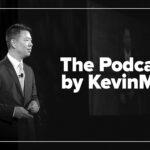For twenty years I have been the mother of a child with a life-threatening food allergy. I know what it is to watch my son’s throat close, to see terror in his eyes, to hear him beg not to die. It felt like time slowed down as we waited for epinephrine to work. Those moments are seared into me. They are not, and never will be, a joke.
That is why I was outraged when, on my flight to Europe last week, I came across an article about a new movie, The Roses. The piece described scenes that made light of food allergies, portrayed misinformation, and even showed an epinephrine auto-injector being used incorrectly in the arm instead of the thigh.
The family of Natasha Ednan-Laperouse explained why this was so dangerous. Their daughter died from anaphylaxis on a flight. They know better than anyone that food allergy is not something to satirize.
After reading their words, I decided I would not watch the movie. The descriptions alone were painful enough: a subplot where a woman’s raspberry allergy becomes the setup for an attempted suicide and an attempted murder, all played for laughs.
For those of us who know the reality of anaphylaxis, there is nothing clever, dark, or comedic about it.
The reason I was traveling was to present at the Global Food Allergy and Anaphylaxis Forum (GAFA). Led by the visionary Dr. Antonella Muraro, GAFA gathers scientists, clinicians, patient advocates, and policymakers from around the world to push what is possible in food allergy care and anaphylaxis prevention.
Coincidentally, as part of my presentation on airlines and food allergies, I spoke about the impact of jokes and how they can shape the actions of crew members and the way other passengers treat those with food allergies.
As I sat in that room in Italy, listening to Jennifer Gerdts, executive director of Food Allergy Canada, speak about two Canadian teens who had died from food allergy reactions, my mind involuntarily drifted back to the article I had read on the plane. Anger rose in me, followed quickly by sorrow.
A movie that trivializes the very condition that killed those children makes life harder for every family living with food allergies. Anaphylaxis is not funny and treating it as comedy only increases the burden.
I have written about this so many times, yet still the message seems to fall on deaf ears. Food allergies are still not taken seriously, and I do not understand why.
A father once described to me cradling his 11-year-old son, resting his head on his chest, and feeling the exact moment his heart stopped. They were waiting for paramedics after a food-induced reaction. His son never opened his eyes again. That story haunts me. At the time, his son and my son were the same age, and they even had friends in common. It felt unbearably close to home.
Stories like these leave me no choice but to keep writing, again and again, until people finally listen.
Please understand no one chooses to have their immune system compromised or to have their body misidentify food as a threat. And because food is everywhere, managing the condition requires cooperation from schools, airlines, restaurants, and communities.
But too often, cooperation is lacking. Too often, education is absent. And too often, stigma is amplified by jokes.
When media makes light of anaphylaxis, it tells children and adults that their fear is something to laugh at. It teaches classmates and colleagues that bullying with allergens is acceptable. It emboldens airlines and restaurants to brush off safety requests.
The consequences are not abstract. They are measured in ambulances called, lives lost, and families grieving.
I am grateful to Natasha’s family for speaking out through the Natasha Allergy Research Foundation (NARF), formed after their daughter’s tragic death. They remind the world that anaphylaxis is a life-threatening emergency and should never be a subject for comedy.
Yet it is heartbreaking that a family who lost their child must once again shoulder the burden of saying so.
Years ago, at the inquest into Natasha’s death on a British Airways flight, one crew member described thinking of the epinephrine auto-injector as if it were a “magic wand.” They never believed she could die after it was administered.
That is the danger when comedy and careless portrayals seep into public thought. People underestimate anaphylaxis, even in a medical emergency.
The entertainment industry must do better. Consult allergy experts before portraying anaphylaxis. Stop mining medical trauma for laughs. Recognize the power of media. Accurate depictions save lives, while irresponsible ones put them at risk.
Health care professionals also have a role. We must push for more education in schools, more resources for families, and more awareness in public spaces. Our voices matter in shifting culture.
And to the public: When you see food allergies mocked whether in a blockbuster film, a comedy sketch, or daily life, do not stay silent. Speak up. Refuse to laugh. Refuse to let cruelty be normalized.
Food allergies are an invisible disability, but their impact is all too visible to the families who live with them.
My hope is that one day it will be taboo to joke about anaphylaxis, just as it is unthinkable to joke about insulin for diabetes or chemotherapy for cancer. Clearly, we are not there yet. But every time we raise our voices, we move closer.
Lianne Mandelbaum is a leading advocate for airline safety measures to protect food-allergic passengers. As president of No Nut Traveler and airline correspondent for Allergic Living, she drives policy change by collecting testimonials from food-allergic families to share with lawmakers, media, and advocacy groups. She can be reached on X @nonuttraveler, Facebook, and LinkedIn.
A sought-after speaker and media source, Lianne participated in a Medscape panel on emergency medical kits on planes and contributed global data on airline travel and food allergies at the GA²LEN Anacare Anaphylaxis & Food Allergy Forum. Her travel tips were also featured by Stanford’s Sean N. Parker Center for Allergy Research. She also appeared on Bloomberg to discuss the challenges faced by food-allergic travelers and advocate for policy changes.
Her advocacy led to a Department of Transportation ruling recognizing food allergy as a disability. She co-designed a global air travel and food allergy survey with Northwestern University’s CFAAR, which was presented at AAAAI and published in The Journal of Allergy & Clinical Immunology. She is the co-author of “Understanding Experiences, Barriers, and Facilitators of Safe Airline Travel—A Global Survey of Food Allergy Patients and Caregivers” (The Journal of Allergy & Clinical Immunology). She also contributed to “10 Practical Priorities to Prevent and Manage Serious Allergic Reactions: GA²LEN ANACare and EFA Anaphylaxis Manifesto” (Clinical and Translational Allergy) and “Ever Treat a Patient on a Plane? Why Med Kits Need an Update” (Medscape). Additionally, she collaborated with stakeholders to include anaphylaxis and necessary medications in the FAA Reauthorization Act of 2024.




















![AI censorship threatens the lifeline of caregiver support [PODCAST]](https://kevinmd.com/wp-content/uploads/Design-2-190x100.jpg)

